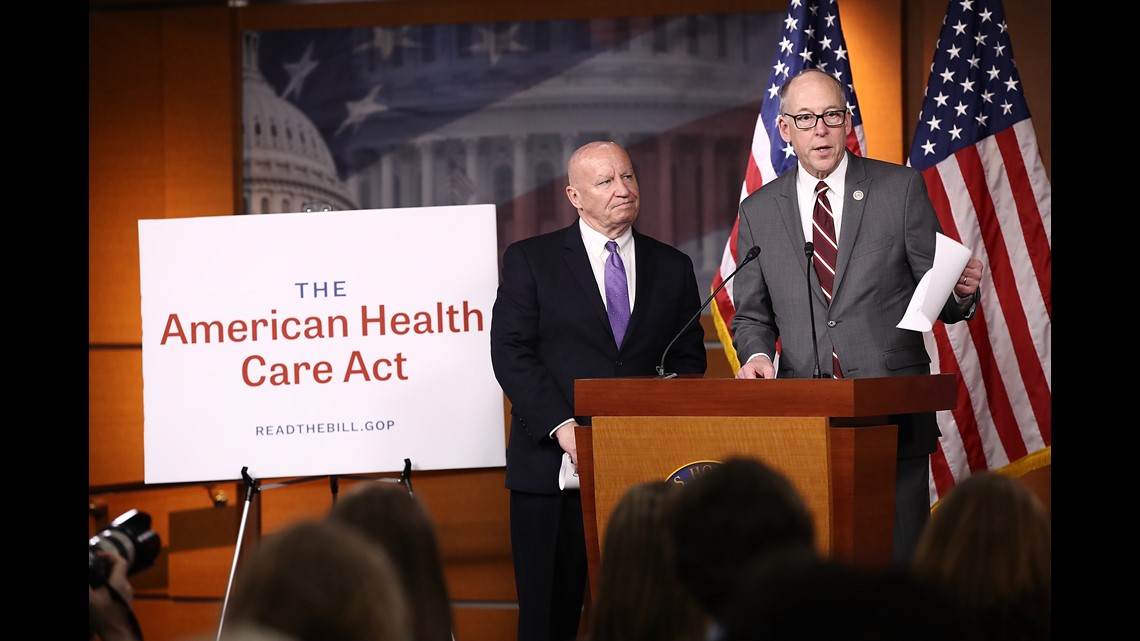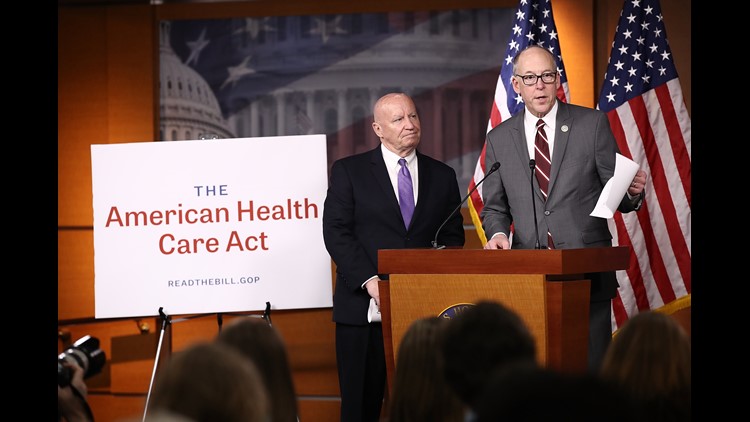



By Meg Wagner
‘This is Obamacare-lite’
A growing list of conservative groups and lawmakers balked on Tuesday at House Republicans’ plan to dismantle the Affordable Care Act, condemning the replacement health care bill “Obamacare 2.0.”
On Tuesday the Tea Party denounced the newly introduced American Health Care Act, a Republican health care bill that maintains some of the most popular provisions of the 2010 Affordable Care Act (ACA) and was revealed on Monday.
“I personally received over 600 emails stating opposition to this plan,” Tea Party Patriots President Jenny Beth Martin said in a statement. “The overwhelming response from our activists is, ‘This is not what we meant or expected when we voted for Congress to repeal Obamacare. Keep your promise to repeal Obamacare.’”
A trio of right-wing advocacy groups — Heritage Action for America, FreedomWorks, and Club for Growth — on Tuesday also joined the growing chorus of Republican critics who say the bill, which still provides insurance funding, but changes the manner in which it will be doled out.
“This is Obamacare-lite,” FreedomWorks said in a Tuesday statement.
Heritage insists that the new bill expands upon the “flawed progressive premises” of Obamacare, and Club for Growth said it is not the “full and immediate repeal of Obamacare’s taxes, regulations and mandates” that conservatives wanted.
Monday’s new bill quickly earned scorn inside the House, too, with Rep. Justin Amash (R-Mich.) calling it “Obamacare 2.0.”
The Republican Study Committee, a caucus of 172 House Republicans, was especially critical of the proposal.
“Writing checks to individuals to purchase insurance is, in principle, Obamacare,” the group wrote in a Monday memo.
Obamacare vs. Trumpcare (aka Ryancare)
The ACA and the new bill — dubbed “Trumpcare” by some critics because the president campaigned on a promise to end the health care law, and “Ryancare” by others because Speaker of the House Paul Ryan led the charge in its creation — differ fundamentally in the way that they allocate funds to help cover health care.
Where Obamacare provided large federal subsidies to low- and middle-income Americans to purchase insurance, the new plan is rooted in age-based tax credits.
Under the Republicans’ plan, more people would receive the tax credits, but they wouldn’t be as generous as Obamacare subsidies. While the tax credits would range between $2,000 and $4,000, the average subsidy is $386 per month in 2017, or about $4,600 per year.
The new bill also phases out expanded health care funding for low-income Americans by killing the Obamacare Medicaid expansion, which 31 states opted into. The expanded Medicaid program has insured 11 million low-income Americans. Under the new bill, enrollment would freeze in 2020.
The new plan would also repeal Obamacare’s fines against those who do not purchase health insurance. Instead, insurers would be allowed to charge customers higher premiums for letting their health care lapse.
There are some similarities, though: Like Obamacare, the proposed law would allow children to stay on their parents’ health care plans until they are 26 years old, instead of reverting to pre-Obamacare rules that cut off them off at age 19 (or 22 if they they’re full-time students).
The replacement law, like the ACA, would also prohibit insurers for denying coverage to customers with pre-existing conditions — one of the most popular provision included in the ACA. In a 2012 poll, a whopping 82 percent of respondents said they supported that measure.
Moderate and Democratic critics, too
While Republicans hold a majority in both the House and Senate, passing the new bill into law will not be an easy feat: Conservatives, moderates, and liberals alike have all grumbled about the bill.
Aside from the right-wing lawmakers who have condemned the measure for being too similar to Obamacare, other Republicans have rebuked it for taking away the ACA’s Medicaid expansion.
At least four Republican senators — all from states that expanded Medicaid under the ACA — have condemned the entitlements roll back, saying they cannot support the as-written bill, as it would leave swaths of their constituents uninsured.
“We believe Medicaid needs to be reformed, but reform should not come at the cost of disruption in access to health care for our country’s most vulnerable and sickest individuals,” Sens. Shelley Moore Capito (R-W.V.), Cory Gardner (R-Colo.), Lisa Murkowski (R.-Alaska), and Rob Portman (R-Ohio) wrote in a Monday letter.
Meanwhile, House Democrats are among the bill’s most vocal critics. Their leader, Rep. Nancy Pelosi (D-Calif.) said that the Medicaid downsizing would push low-income families “into the cold,” and insisted the new plan would make health care more expensive across the board.
“Tonight, Republicans revealed a Make America Sick Again bill,” she said in a statement. “Republicans will force tens of millions of families to pay more for worse coverage — and push millions of Americans off of health coverage entirely.”
Both the House and the Senate would need to pass the bill before it would head to President Trump, who could sign it into law (or veto it, although that’s unlikely, considering that he praised it on Twitter on Monday).
The Republicans can’t afford to lose too much support from their own party if they want to pass the health care bill. They’re seeking to pass it through via reconciliation, a political maneuver that allows budget bills to pass with a simple majority vote and avoids the potential for a filibuster. That means if Democrats stand united against the plan, 50 of the 52 Republican senators would need to vote for the bill for it to pass. The House could only afford 19 no votes from Republicans.



